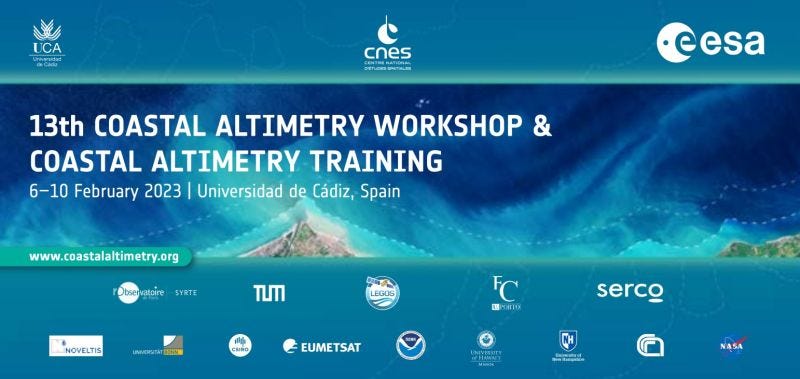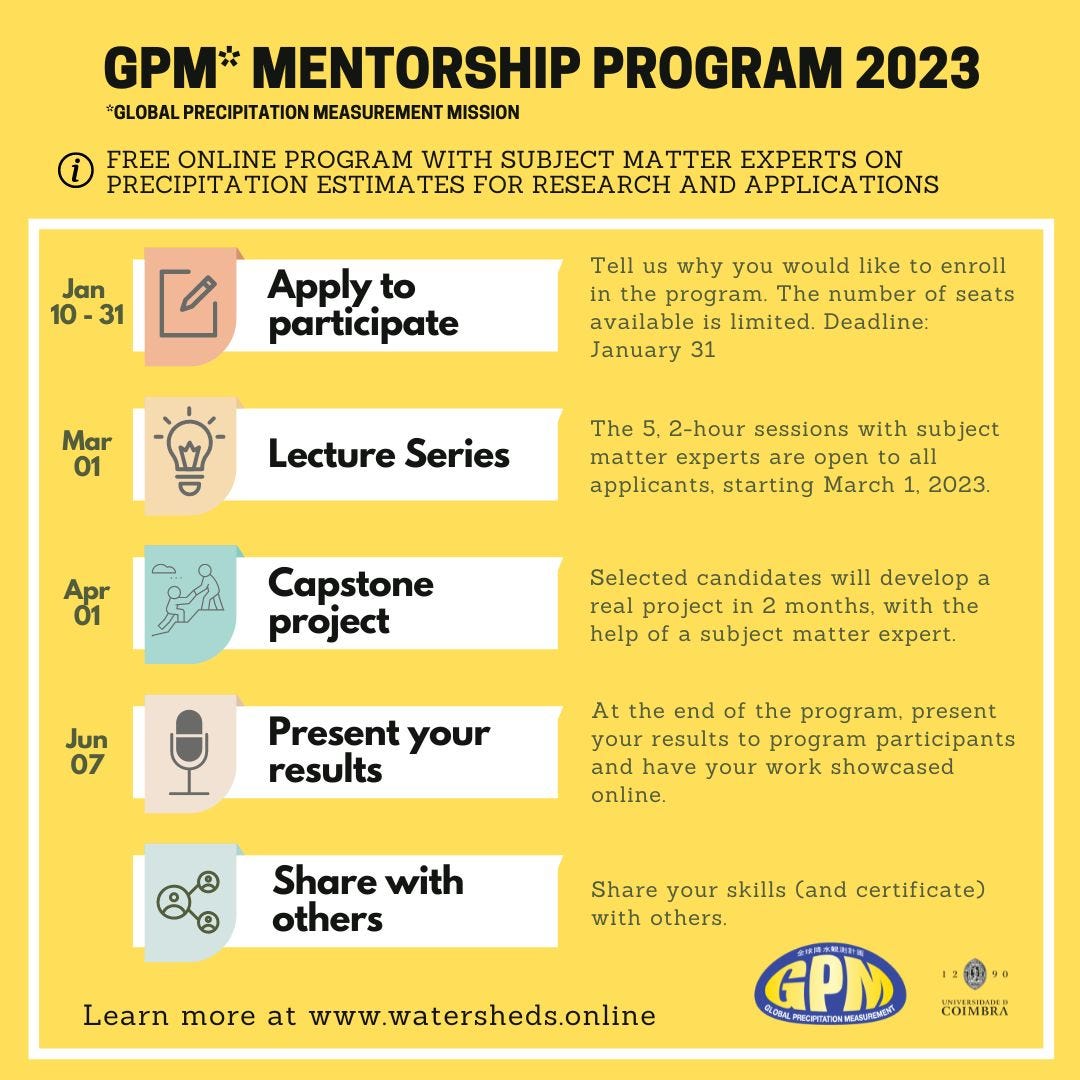#20 Weekly Remote Sensing and Geoscience news! 🛰️🌍
📢 The Remote Sensing and Geoscience news in 5 minutes.
These are the topics of our #20 newsletter issue:
🛰 Lecture: Volcanoes from Space - From Opportunistic Science to Routine Monitoring
🛰 Webinar: Jump-Start SAR Data Analysis in the Cloud with ASF’s OpenSARLab
🛰 13th Coastal Altimetry Workshop
🛰 GPM Mentorship 2023: Precipitation estimates, science and applications
🛰 Exxon scientists have predicted global warming with impressive accuracy since 1977
🛰 NASA: 2022 was effectively tied for the 5th warmest year on record
If you are not a subscriber, please, consider it. You are very welcome.
I wish you a good read! :)
Lecture: Volcanoes from Space - From Opportunistic Science to Routine Monitoring
Active volcanoes are often dangerous and difficult to access. Over the last 20 years, a new generation of satellites has revolutionized our ability to measure surface deformation, transforming our understanding of volcanoes and increasingly influencing hazard management.
Professor Juliet Biggs will showcase the latest machine learning approaches and look ahead to future missions.
📆 1 February 2023
⏳ 2 hours session
✍🏾 Free

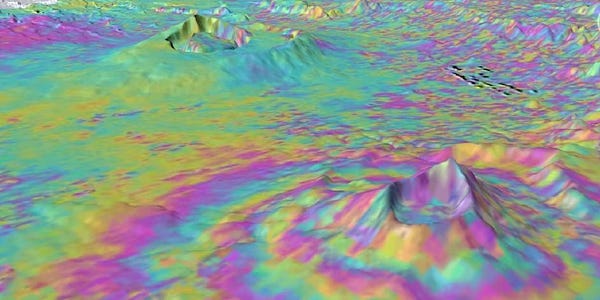
Webinar: Jump-Start SAR Data Analysis in the Cloud with ASF’s OpenSARLab
SAR datasets are large files — which is important when considering data download and storage options.
OpenSARLab aims to improve upon computing environment capabilities by providing free, limited access to a cloud-hosted Jupyter Hub that sits alongside ASF data archives in Amazon Web Services (AWS), making the transfer of SAR data to users’ persistent storage volumes fast and free.
Additional benefits of OpenSARLab include:
➡ Access to an open library of data recipes in the form of Jupyter Notebooks.
➡ Extendable software environments (via Conda), which enables users to skip the convoluted setup process and start working with data right away.
📆 25 January 2023
⏰ 2 p.m., ET [UTC -5]
✍🏾 Free

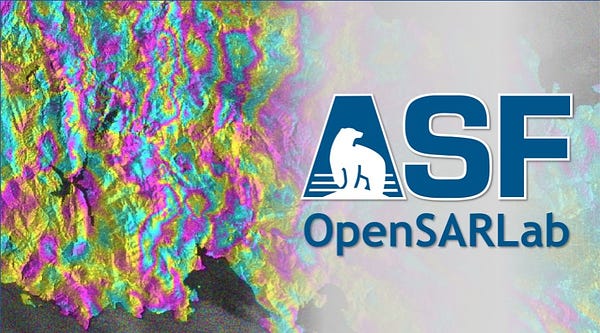
13th Coastal Altimetry Workshop
The workshop will feature studies using the latest missions' data products (Sentinel-6 Michael Freilich, Sentinel-3A/B, CryoSat-2, CFOSAT, HY-2, AltiKa and Jason-3) and simulated data from the future SWOT mission.
Dedicated sessions will cover technical issues and applications in coastal altimetry (sea level, dynamic topography, currents, winds and waves, sea state, extreme events, etc.), including investigations on the complex hydrodynamics of estuaries and on how the runoff affects coastal water circulation, and discuss other data for both real-time monitoring & long-term change studies and products for operationalization.
📆 6-10 February 2023
📍 Universidad de Cádiz, Spain
More information: 13th Coastal Altimetry Workshop
Mentorship: Precipitation estimates, science and applications
The Global Precipitation Measurement (GPM) Mentorship Program is looking for students, early career scientists, and practitioners from meteorological and development agencies to join them in exploring the science behind precipitation estimates.
Participants will have the chance to learn from and work with subject matter experts from NASA and other reference organizations.
💡 The program includes:
✔️ 5, 2- hour lecture series
✔️ Discussion groups with Mentorship alumni
✔️ Capstone, where participants will develop a project with a mentor, for 2 months.
📍 Online
✍🏾 Free
More information: GPM Mentorship 2023
Exxon scientists have predicted global warming with impressive accuracy since 1977
The study projected in 12 graphics the temperature changes observed between 1977-2003 and shows an estimate of the average global temperature increase from 1960-2080 due to future fossil fuel burning.
The study also shows:
➡ A correctly rejected the prospect of a coming ice age
➡ Accurately predicted when human-caused global warming would first be detectable
➡ Reasonably estimated the carbon budget for holding warming below 2ºC
Check out below a complete thread written by the first author on Twitter.
The paper is available with no paywall for 2 weeks from now (~ until January 26). Check out: Assessing ExxonMobil’s global warming projections

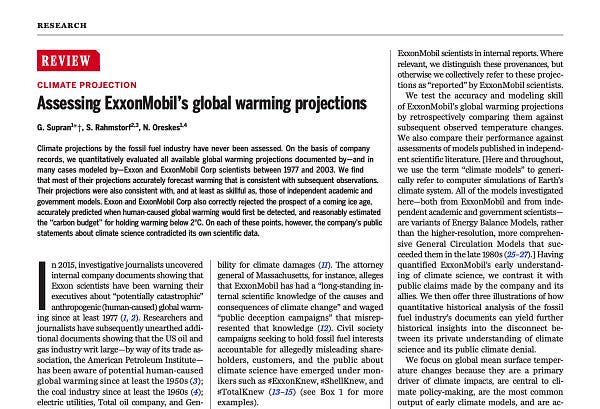
NASA: 2022 was effectively tied for the 5th warmest year on record
According to NASA analysis, the Earth in 2022 was about 1.1ºC warmer than the late 19th century average.
2022 set new records for ocean heat in NOAA and NASA analyses. This increased ocean heat can fuel intense storms e.g., hurricane Ian in September (learn more).
Warmer surface temperatures also exacerbate drought conditions. The American West experienced ongoing droughts in 2022 (learn more).
Drier conditions also mean more fuel fires e.g., in Argentina in January 2022 (learn more).
Learn more: NASA Says 2022 Fifth Warmest Year on Record, Warming Trend Continues

Thanks for reading! See you next week!
Don't forget to like it and comment.
I appreciate it and I love to hear from you. :)
— Rafaela Tiengo



